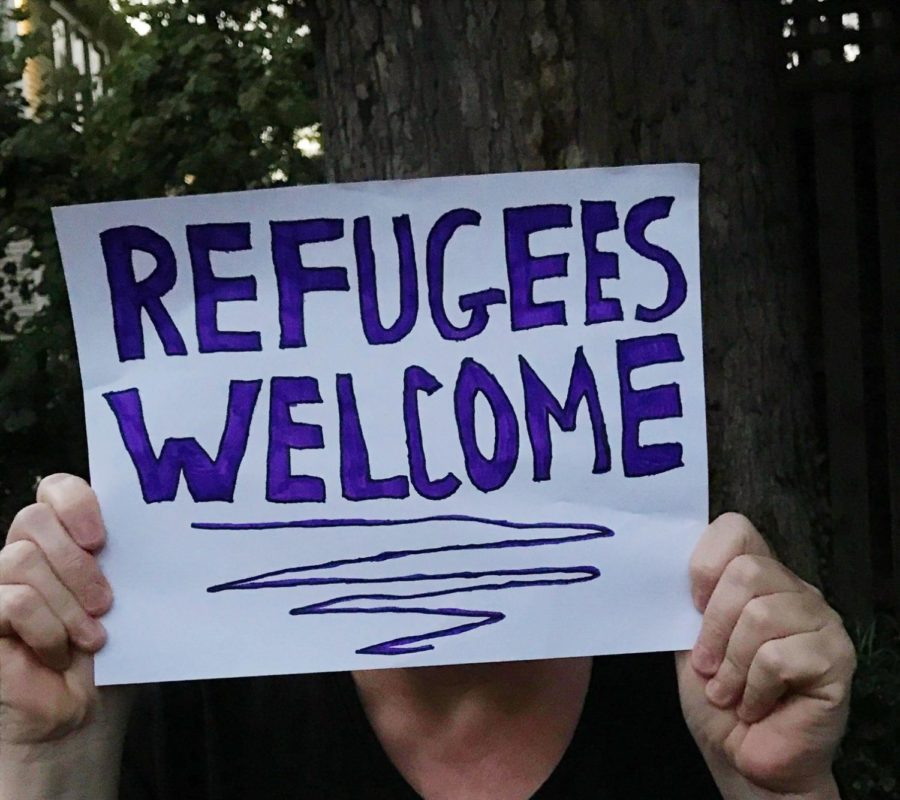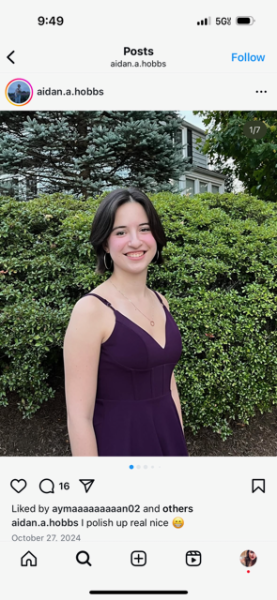Lending a hand
How the W-L community can help Afghan refugees settling in the area
In the past year thousands of Afghan refugees have entered the United States.
“Refugees are mothers, fathers, sisters, brothers, children, with the same hopes and ambitions as us — except that a twist of fate has bound their lives to a global refugee crisis on an unprecedented scale,” refugee Khaled Houssini, an Afghan-American novelist, once said.
In the past year thousands of Afghan refugees have entered the United States, many of whom served alongside U.S. troops in a variety of roles such as cultural advisor, translator, interpreter and driver, among others, during the last 20 years when American and United Nations forces supported the recently-collapsed Afghan government.
According to CNN, the foreign intervention occurred due to the events on September 11, 2001, in which more than 2,700 Americans were killed through airplane assaults on the Twin Towers in New York City and the Pentagon. Four planes had been hijacked by members of Al-Qaeda, a group of Islamic extremists, and crashed into their desired targets. The fourth plane was likely directed toward the Capitol, but due to efforts of passengers, crashed in a field in Pennsylvania instead.
According to the U.S. government, Al-Qaeda leader Osama Bin Laden executed these attacks through Taliban-controlled Afghanistan. As a result, the U.S. quickly invaded Afghanistan with the goal of stopping the Taliban protection of Al-Qaeda and the use of Afghanistan by Al-Qaeda for terrorist activities. Over this past summer, Biden chose to end the two decades long war due to “[wanting to end] the costs to the United States that would have been even higher had he allowed the nation to remain mired for years in a civil war that has dragged out for decades,” he said in a press conference on August 31.
According to Lutheran Social Services, a group currently helping refugees settle into the Washington, D.C., area, Afghan allies of the U.S. and their families have become targets of anti-American violence from the Taliban due to the withdrawal of U.S. troops from Afghanistan. Before the 2001 invasion of Afghanistan, the Taliban, a fundamentalist Islamic terrorist group, restricted women’s rights as well as violated “international humanitarian law and human rights,” secretary-general of the United Nations, António Gutteres said in a tweet on August 15. Not immediately able to receive a Special Immigrant Visa (SIVs), many U.S. allies were trapped in the Kabul International Airport while trying to escape from anti-American violence and the potential return of the Taliban’s previous rules.
Since then, many refugees have been aided by the U.S. government and other groups, and the district and the areas surrounding it have welcomed these refugees by the thousands. Now it is up to many resettlement agencies to help aid them in settling into their new communities by providing housing, food, resources and other items. Even in Arlington there is an agency for the issue—the Ethiopian Community Development Council (ECDC)—which often changes its focus to different issues, namely whatever is timely.
“While ECDC was initially created to meet the needs of a growing Ethiopian community, the refugee resettlement program has served clients from many locations,” the organization said on their website. “As of now, the Arlington branch of the organization is focused on efforts to aid in the current need of helping Afghan refugees settle into the D.C. area.”
According to Christy McCaw, the Resource Development Manager at ECDC, the organization has received a surplus of help from the community in doing so.
“We’ve greatly appreciated the interest that people from the local community have shown in supporting Afghan evacuees upon arrival,” McCaw said. “Successfully welcoming and integrating these individuals and other refugees escaping similar dangerous situations across the world is something our agency cannot do alone.”
However, the organization needs more help, and encourages others to join in the efforts through donations.
“We are always in need of monetary donations,” McCaw said. “These help us to supplement rent and other costs for newcomers after the limited one-time government grant is exhausted, and before they become self-sufficient. We also need in-kind donations of household items that are needed to furnish homes for newly arriving families. People [can] purchase items on the DC Metro’s Amazon Wish List as well.”
This wish list includes items such as vacuum cleaners, backpacks, kitchen supplies, folding chairs and several others, some of which are less than 25 dollars. Bedding, kitchen supplies, toiletries, furniture, pre-loaded SmarTrip metro cards, visa gift cards, electronics, baby clothes, car seats and strollers are among other vital items to be donated.
“Items must be either new, or slightly used,” the website said. “[In order to donate, one should] contact ECDC at [email protected]… to schedule a drop-off at our Arlington office, [located] at 901 S. Highland Street, [in the zip code 22204].”
Outside of refugee resettlement agencies, there are other ways for community members to help Afghan Refugees. One way is through One String, a non-profit recently formed by Oakton and James Madison high school students Tanya Raja, Rachel Hwang and Hiya Dutia.
“The current goal [of One String] is to have participants make friendship bracelets, and then we’ll sell them [through Instagram, with the username 1one_string], and donate the money we make to Lutheran Social Services,” Raja said. “However, we’re not just limited to the bracelet idea, and are also considering potentially more profitable fundraisers.”
One String chose to work with Lutheran Social Services, which has helped welcome almost 1,000 Afghan refugees to the area since late July, due to its locality, similar to ECDC.
“They’re based here in D.C., and help with different resettlement services for Afghan refugees in the area,” Raja said. “This includes things like job training, education, English-learner programs, sustainable housing and food. We wanted to help provide these basic necessities.”
Lutheran Social Services functions through collaborations with others.
“We work in partnership with faith communities, foundations, local, state and federal partners and hosts of volunteers to welcome hundreds of refugees from around the world to the United States every year, [and have been doing so] since World War II,” the organization’s website said.
One String chose to aid in the efforts of helping Afghan refugees due to the urgency of the crisis.
“We chose to donate towards an organization helping with the Afghan refugee crisis, because currently, it’s a big issue,” Raja said. “There are thousands of Afghan refugees settling in the area, including some who will be students in Fairfax County Public Schools, so it felt like a local and current issue that needed to be focused on.”
Although Lutheran Social Services will benefit from One String’s bracelet making, participants will also get volunteer hours which can help when applying to colleges and universities, as well as in receiving credits for the International Baccalaureate program.
“For those who don’t know how to make bracelets, we’ll likely have some volunteers make a video explaining how, and that person will get extra volunteer hours,” Dutia said.
The group has faced challenges deciding on how to organize the non-profit effectively, as it is not school-based.
“At the moment, we have roughly 30 members who will be making bracelets and getting volunteer hours,” Raja said. “We’re waiting to hold an interest meeting while we reach out to more people, but it will likely be virtual… To get updates, follow us at 1one_string on Instagram, and come to our interest meeting once it’s announced.”
In the future, Raja, Dutia and Hwang look forward to One String’s first donation and the group’s potential impacts.
“One goal we currently have is to spread awareness,” Raja said. “We want to show people that they can help just by making a bracelet or donating a little bit of money; that we can all make an impact.”
For more resources to learn more about the Afghanistan crisis and how to help refugees, see below:
Timeline of 20 year occupation https://www.cfr.org/timeline/us-war-afghanistan
Who are the Taliban? https://www.bbc.com/news/world-south-asia-11451718
Resettlement of Afghan refugees around the world
https://www.bbc.com/news/world-asia-58283177
Organizations in the Washington, D.C. area https://www.npr.org/local/305/2021/08/23/1030276100/here-s-how-to-help-afghan-refugees-in-the-d-c-area










